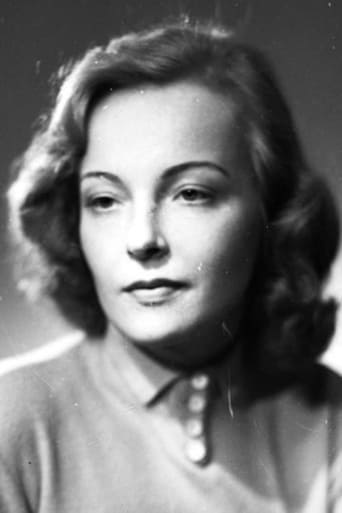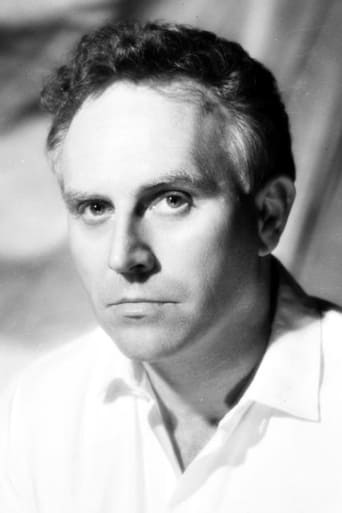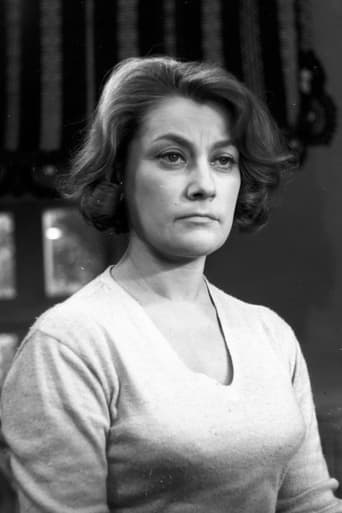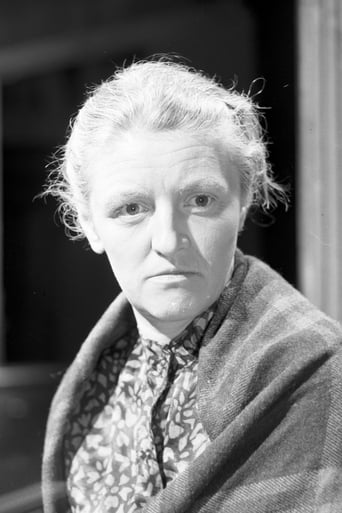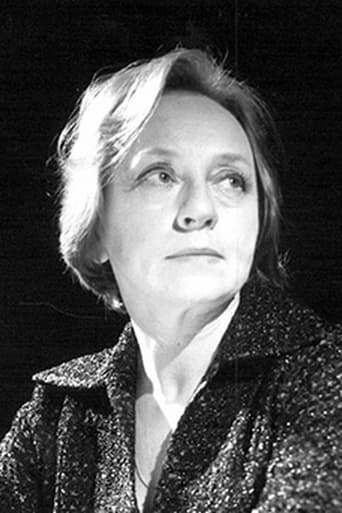InformationRap
This is one of the few movies I've ever seen where the whole audience broke into spontaneous, loud applause a third of the way in.
Derrick Gibbons
An old-fashioned movie made with new-fashioned finesse.
Mathilde the Guild
Although I seem to have had higher expectations than I thought, the movie is super entertaining.
Quiet Muffin
This movie tries so hard to be funny, yet it falls flat every time. Just another example of recycled ideas repackaged with women in an attempt to appeal to a certain audience.
Pavan Bhat
This movie primarily deals with recollections of memories through a series of still images and documentary style story-telling, as we see a woman traveling on a ship narrating the events of her life to her husband, after a chance meeting with a person aboard the ship, who bears resemblance to a Jewish prisoner at Auschwitz she had once saved, during her tenure as a Nazi officer. The film is all but an expanded portrayal of a chance meeting with a stranger aboard a ship, who somewhat bears a stark resemblance to a past acquaintance, strictly dealing with recollection and recounting of memories. This film also happens to be one of Andrzej Munk's unfinished works, setting the tone for the film in terms of the filmmaker's unfinished goals and dreams. Munk's friends took it upon themselves to finish this project as an ode to a visionary filmmaker, who met a premature end to his life. This piece of work not only reflects the protagonist's memories and trauma, but also that of the filmmaker, Andrzej Munk. The protagonist, now a retired Nazi SS officer, is aboard a ship with her husband, sharing figments of her experiences at a Jewish prison at Auschwitz, where she had certain personal encounters and conversations with a Jewish convict, who had everything but freedom. Although, at the helm of the story, it is a fleeting moment or a passing moment at its best, the film captures a score of unspoken emotions and sentiments. What the film tries to capture is a vague retelling of an incident wherein a person whom we believe to be a past acquaintance, could be more than what meets the eye. What makes it more intriguing is the prospect of reconciliation or reuniting of two opposing or similar sentiments or feelings. The film is unique in its storytelling and visual style as it follows a non-linear narrative with narration and documentary-style flip book image storytelling. The unfinished segments of Munk's film have been filled with pictures and artist's impressions of sequences to give the story a more coherent sensibility and feel. However, the segments that Munk himself had shot are a treat to watch, as he had tried to look at a chance meeting with a stranger bearing a resemblance, to be nothing but a fleeting or a passing moment, yet arrive at a point where the character consciences come to a consensus or maybe even come to terms with the harsh realities and truths that they were previously unaware of. Since the film primarily deals with the resurfacing of thoughts ignited by an external agent, in this case, the chance encounter on the ship, it is the utmost responsibility of the film to weave all nostalgic events and lost memories in realist terms, and in totality. Also, this film deals with the plights and sufferings of a country in general and its people in specific. Hence,it is important to observe the intricacies that the above specified film has to offer.
allenrogerj
We can't judge this film because it was unfinished and it may well have been a good career move for Munk to die before he finished it. What we have and what we imagine of the rest is a little masterpiece, but I can't help wondering whether it could have been tied together and made into a unified whole. It's got Munk's wonderful camera movements and his chracteristic concentration on faces, but I wonder what he would have done with the rest of the film.It's worth remembering that Lisa's self-accusing account of her behaviour is every bit as subjective as her self-excusing one. In fact, it could be that there was no Marta or that Lisa never was a concentration camp guard and is imagining everything in the film.
Thorsten_B
In what was to be his final, incomplete film, Andrzej Munk gives an insight into an "island in time", as the narrator calls it. A woman on an ocean cruiser meets what seems to be a person from her own past - a past where she was overseer in the Auschwitz concentration camp, and the other a prisoner. They were bond together by a strange link, which in the view of guard (Liza) was generally build up by some sort of respect and protection, whereas the actual events that follow Liza reminiscences leave no doubt about her participation in the inhumanity and her guild. From the point of view of Marta, the surviver (or is it someone else?), the "relationship" was different. Munks pictures show us two sides of the story in a dream-like atmosphere: Black and white, eerie music, haunting pictures. Though a totally different content, the aesthetic atmosphere recalls 'La Jetee' by Chris Marker, filmed around the same time. In all, a short but intense viewing experience that achieves great emotional impact. Way ahead of it's time.
nbott
This is an incomplete deeply moving masterpiece. The scenes of Auschwitz are disturbing, of course, but more so set against a genuine human drama involving two women on opposite sides of this evil situation. We see how the best of human sensibility can be drawn out in the worst evil places. We witness mixed motives on the part of our overseer of prisoners. Why is she protective of this one concentration camp victim? We see her drawn to the beauty and the power of this simple woman victimized by this idiotic Nazi policy of confinement. She is also conflicted regarding this simple woman's love for her fiancee, a fellow prisoner.This is a situation where you can genuinely regret the cruel fate that would deny us this completed film which is so powerful even in the truncated form completed by his colleagues after Munk's death. See this film if you can get a chance.
